Submitted by WA Contents
This contemporary house bears the traces of Persian culture in the interior by Keivani Architects
Russia Architecture News - Oct 17, 2016 - 18:14 32556 views
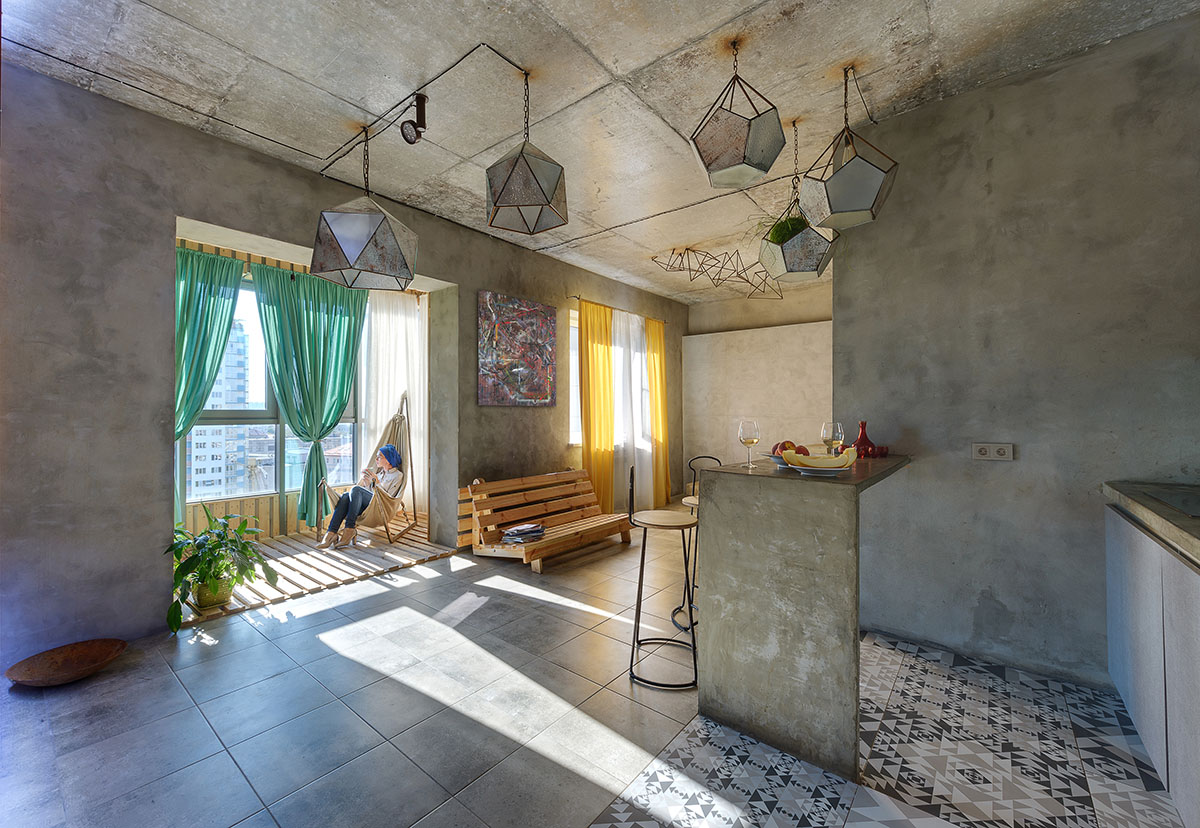
Keivani Architects, in collaboration with Studio Persian Primavera, has completed new interior design in the city of Kiev of Ukraine with elaborated materials and furnitures, combined with exposed concrete, rebar, and metal oxide. Named Mehr Khaneh (House of the Sun), the project is located in one of the apartment block of residential complex in the Ostrovskovo street, covering 101 square meters area in the floor.
Keivani Architects' design approach is based on two essential factors to develop the concept of Mehr Khaneh interior design. The first factor is shaped by the client’s interests in the Persian civilization, culture, and values, namely the metaphors of Mithraism and sun. The second factor is derived from an artistic character of the client, which had to be reflected in design.

Considering the budget restrictions, architects aimed to develop a minimal and affordable space, yet artistic and Iranian genius loci with a symbolic approach to Mithraism. Accordingly, by conceptualizing the design based on the styles of Loft Architecture, the studio used exposed concrete, rebar, and metal oxide to design the space.
The choice of brick and wood as well as lighting design created a cozy and warm atmosphere that is desirable for a residential place.
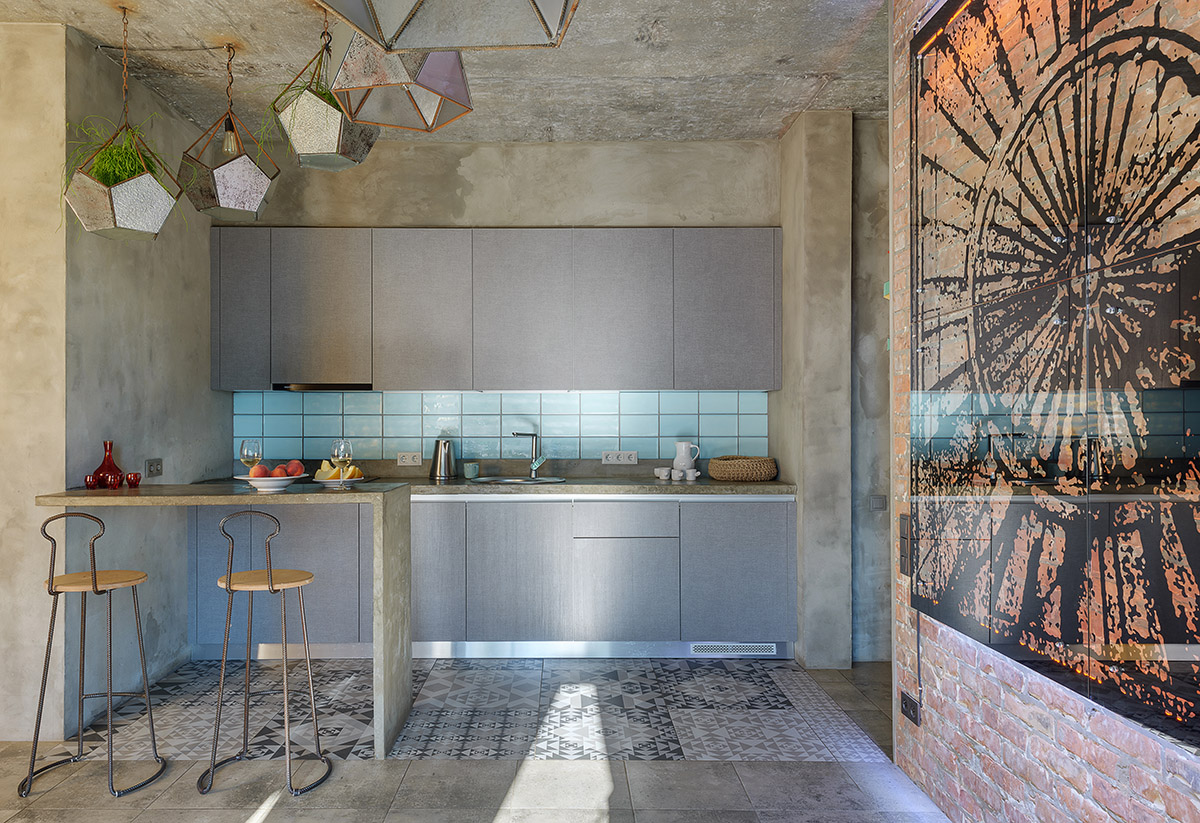
One of the most important design ideas is the set of stairs located in the living room; it is a symbolic, yet philosophical element. This element is inspired from historic mehrabs and ziggurats, which are symbols of promotion and approaching closer to sun. Sun is the symbol of light, and light is the symbol of knowledge and wisdom.
This design is a symbol of approaching to sun and advancing to knowledge essential for improvement and actualization of thoughts for an artist. The direction and raise of stairs are toward east and sunrise.
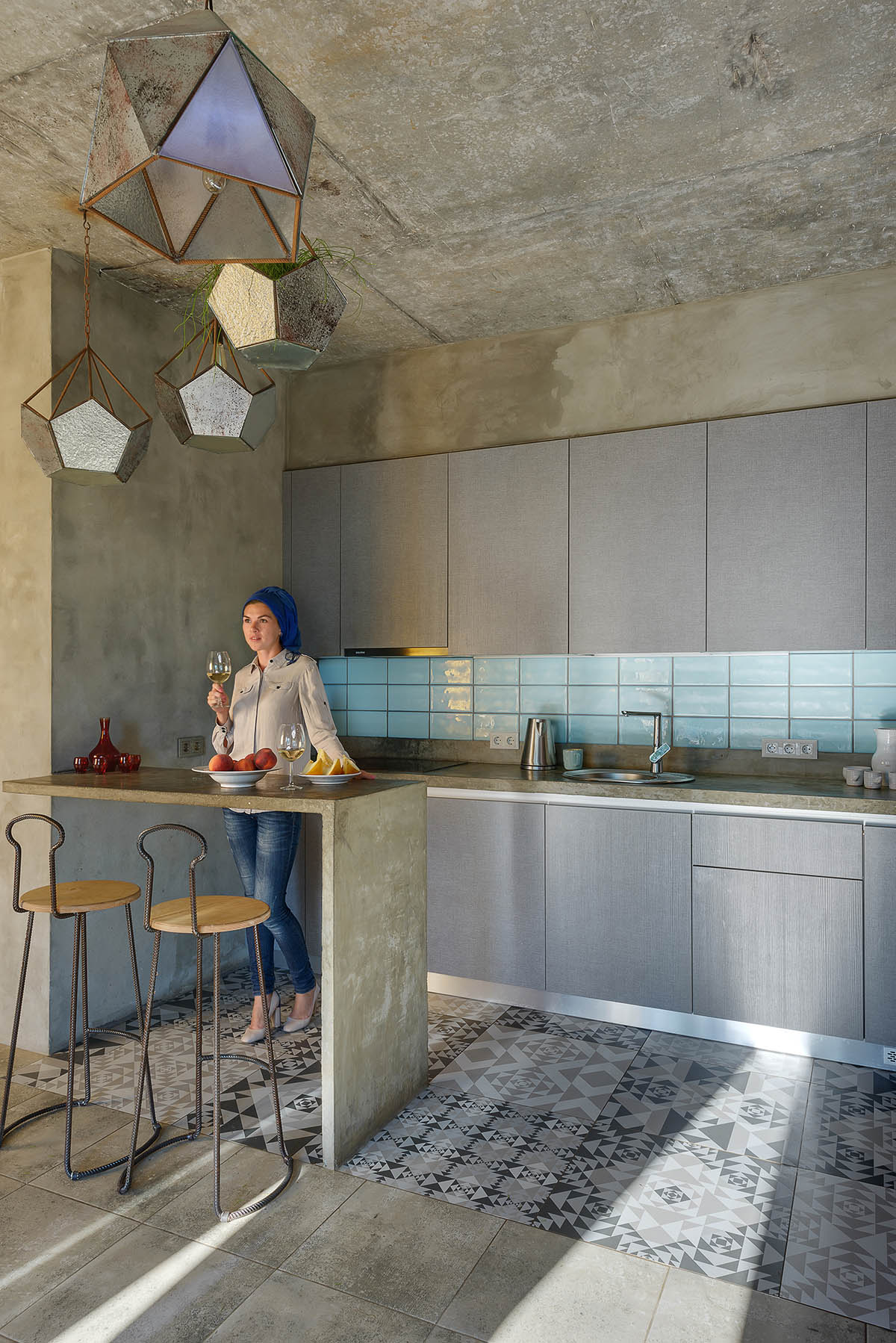
The design of lighting fixtures is also inspired by the symbolic role of Sun, and it follows the geometric symbol of sun, which a triangle surrounded by a dodecagon, used in traditional Iranian architecture.
In a part of ceiling the triangular and pyramidal shapes are used such that they are such as the extensions of the light radiation that pass through the roof and shines inside such that no barrier _even a concrete wall- cannot prevent the knowledge and wisdom.

The ancient sun pattern was used as a light frame in this unit. Furnitures are designed in accord with the aforementioned concepts, realized by using materials such as concrete, rebar, and metals.
Not only architects applied this concept to the interior design of kitchen for consistency, the studio also used turquoise tiles in this space to inspire the sense of place (Genius loci) that emerges in the Iranian traditional architecture.
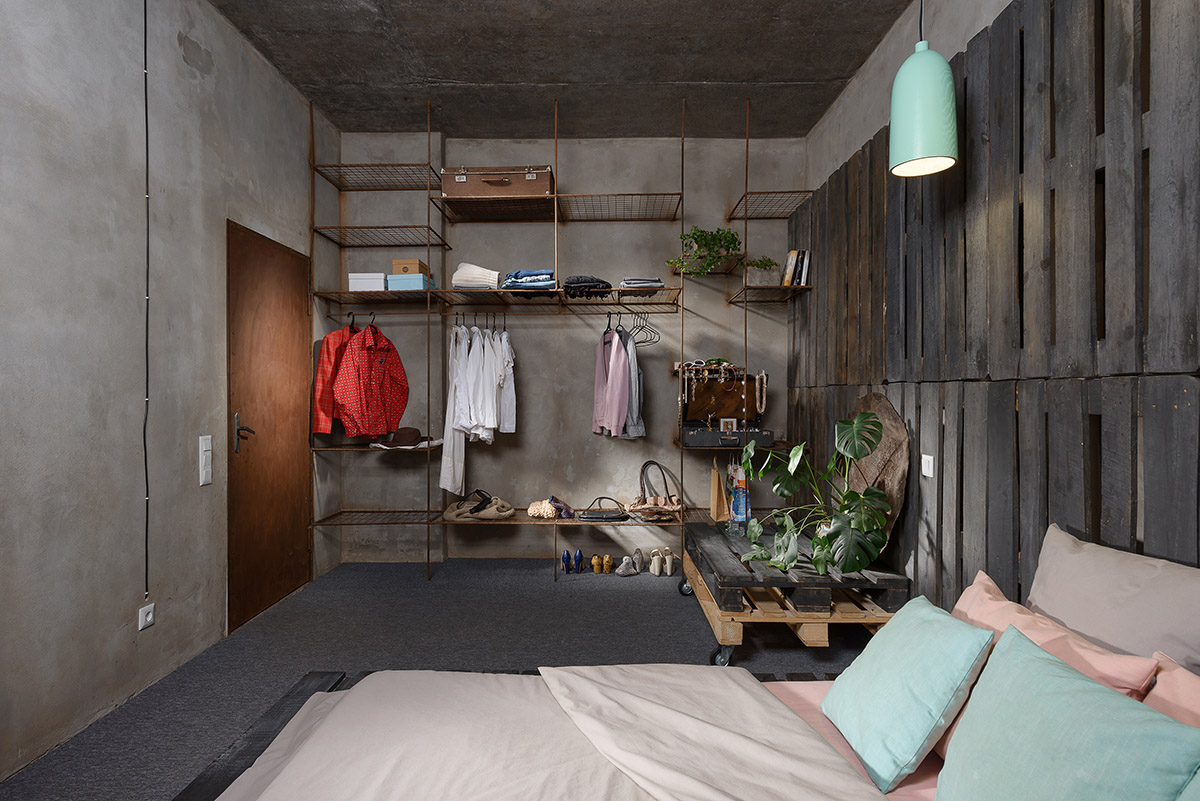
Considering the role of plants in traditional Iranian architecture, planting components have been placed in different parts of this unit, for example, in the kitchen, as hanging components. In the space right in front of the kitchen, wooden materials are used to create a beautiful scenery with the special daylight available at sunset.
One room is considered as the home office and meeting room, designed with simple yet creative ideas like using patterns of concrete for the floor lamps.
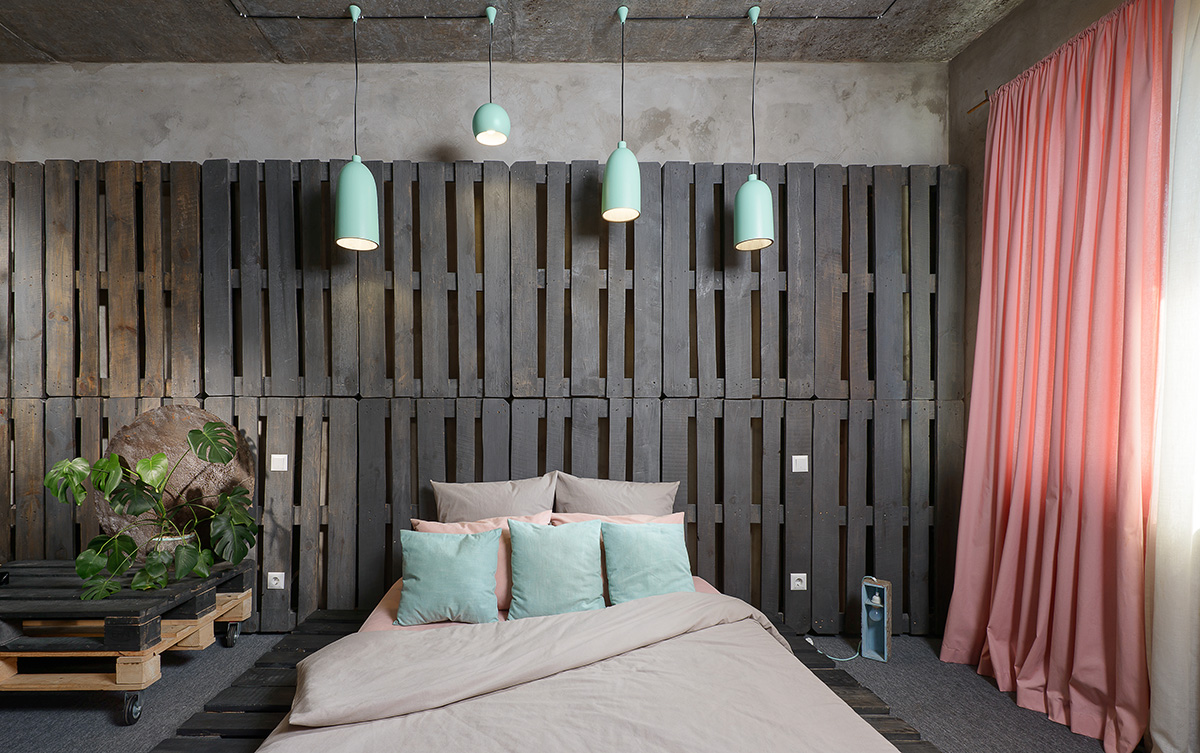
Although affordable materials such as concrete, rebar, and recycled wood are used in the bedroom’s interior design, Keivani Architects' design has created a desirable and relaxing space to satisfy the requirements of a bedroom.
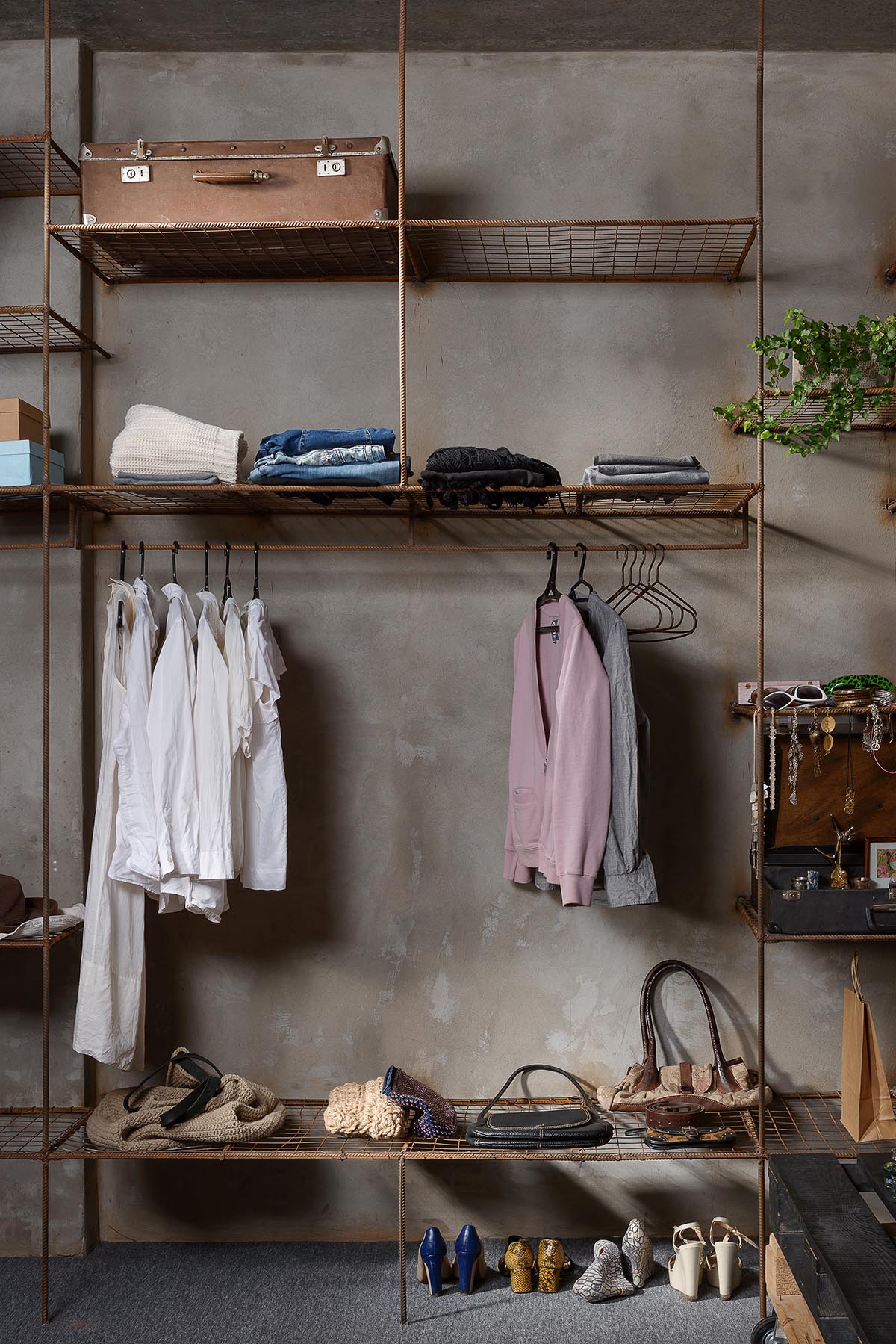
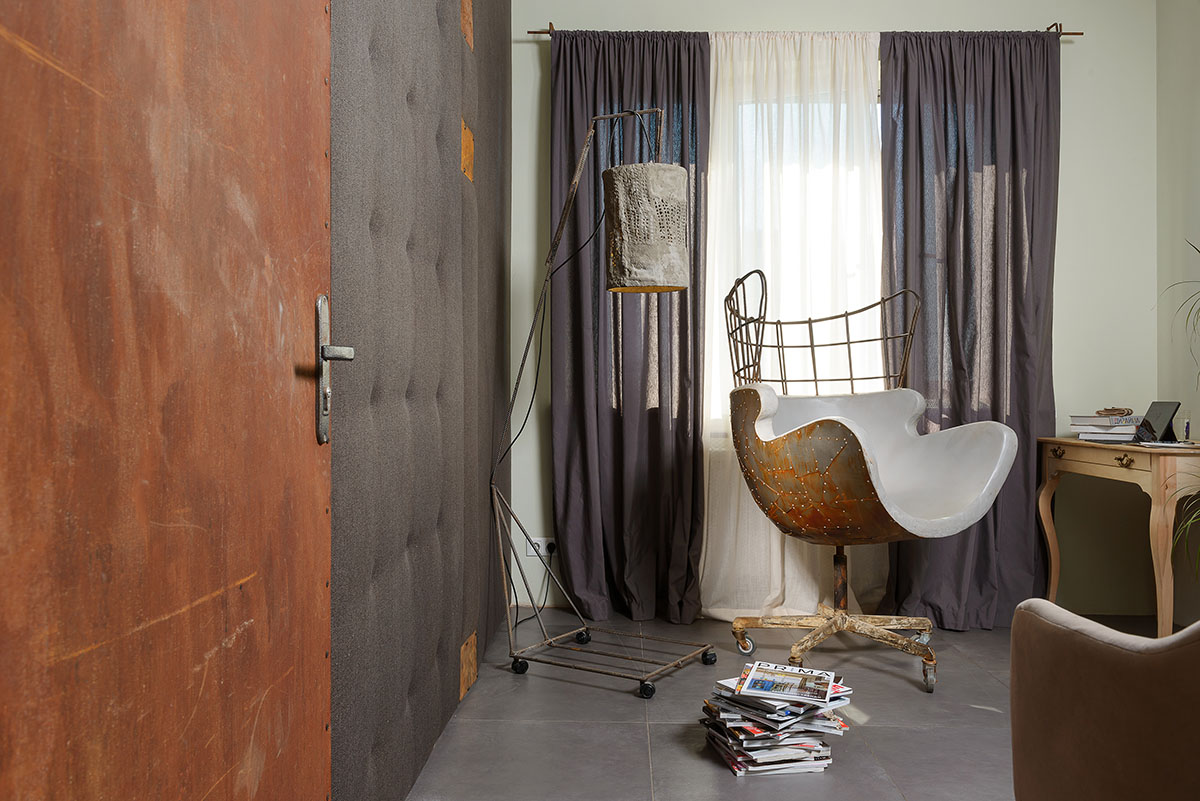

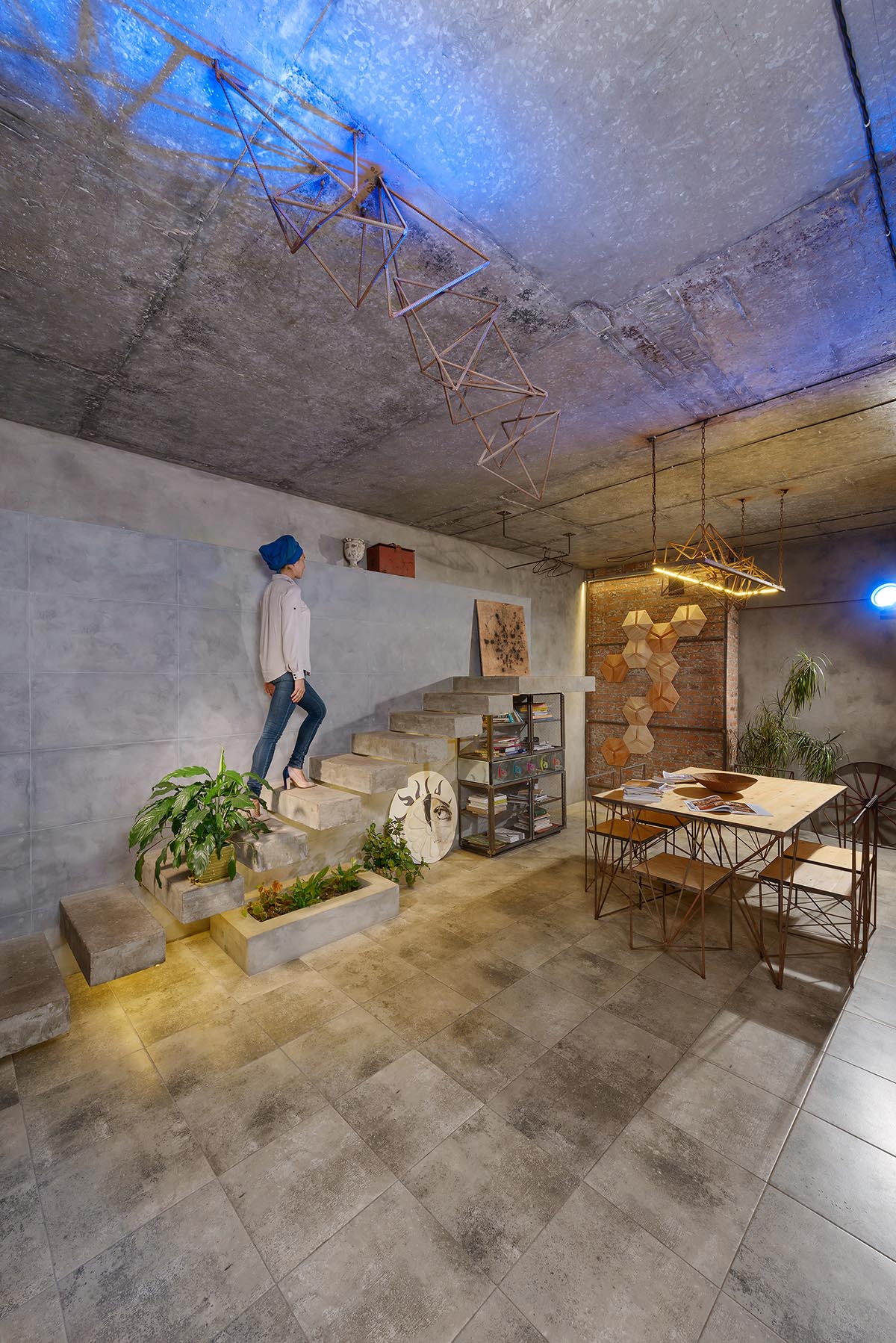
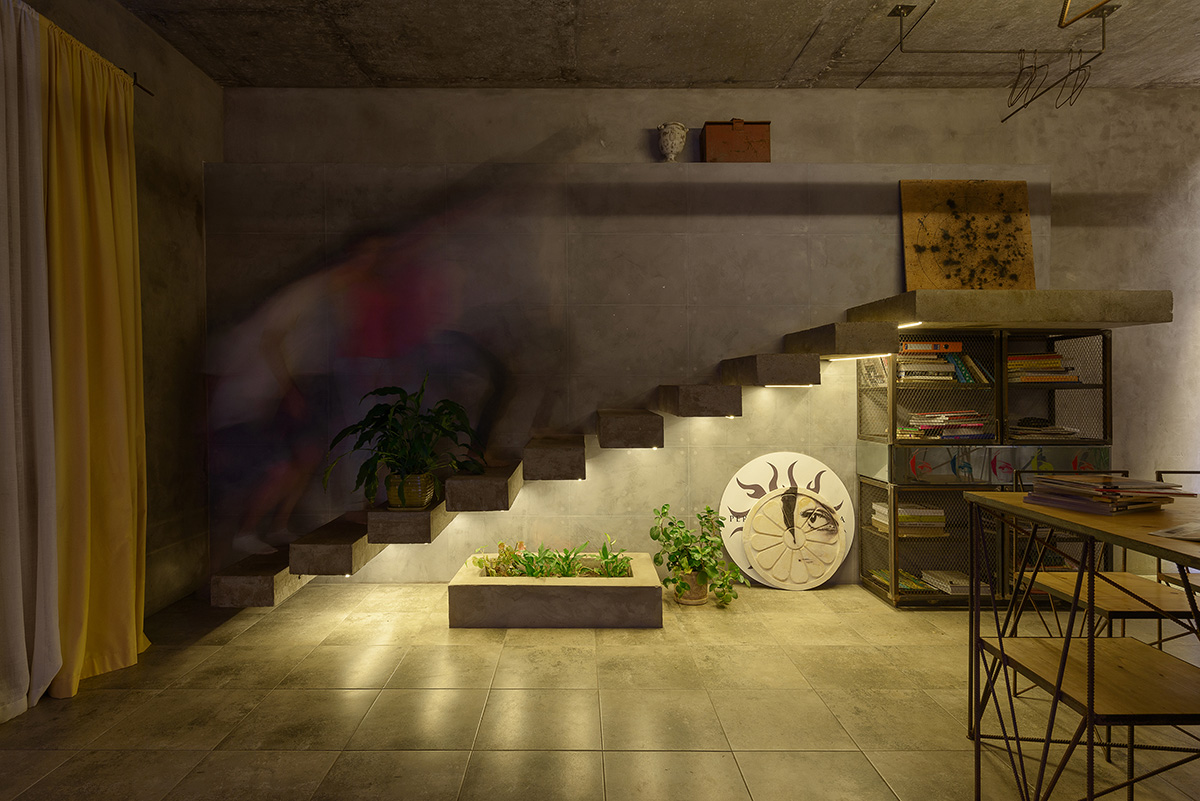

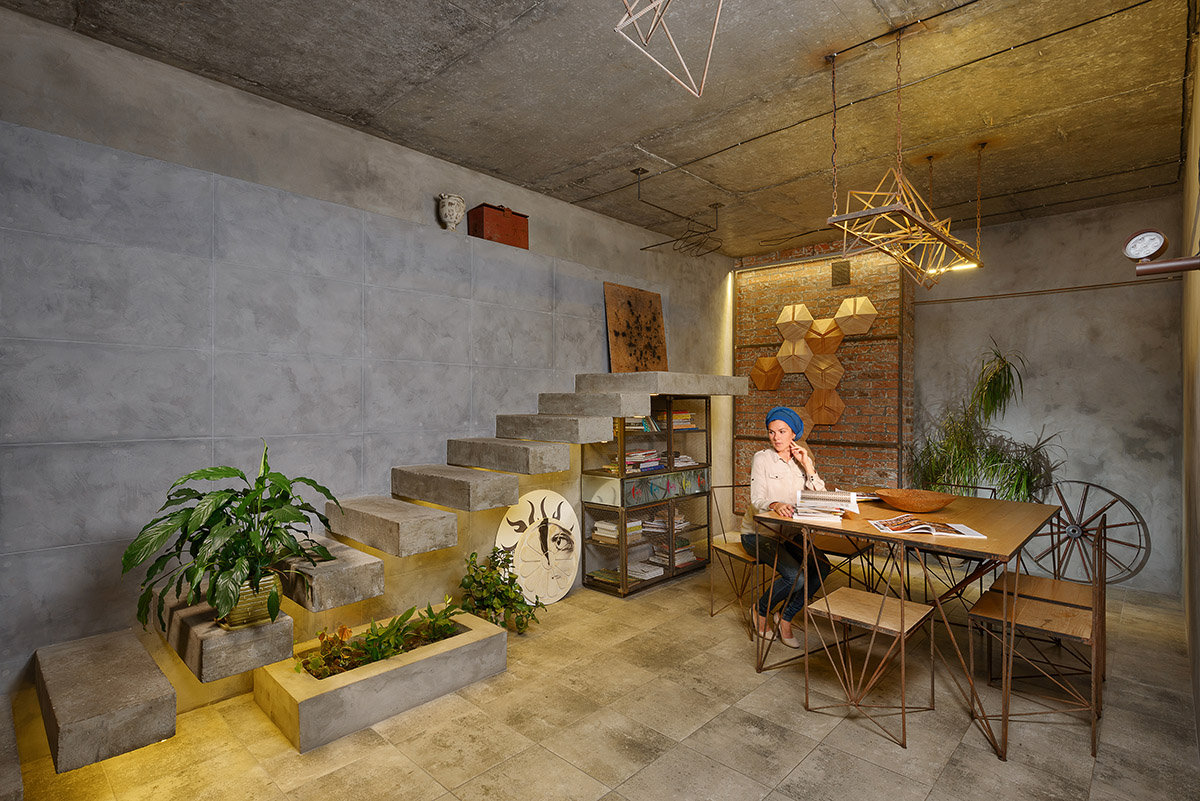

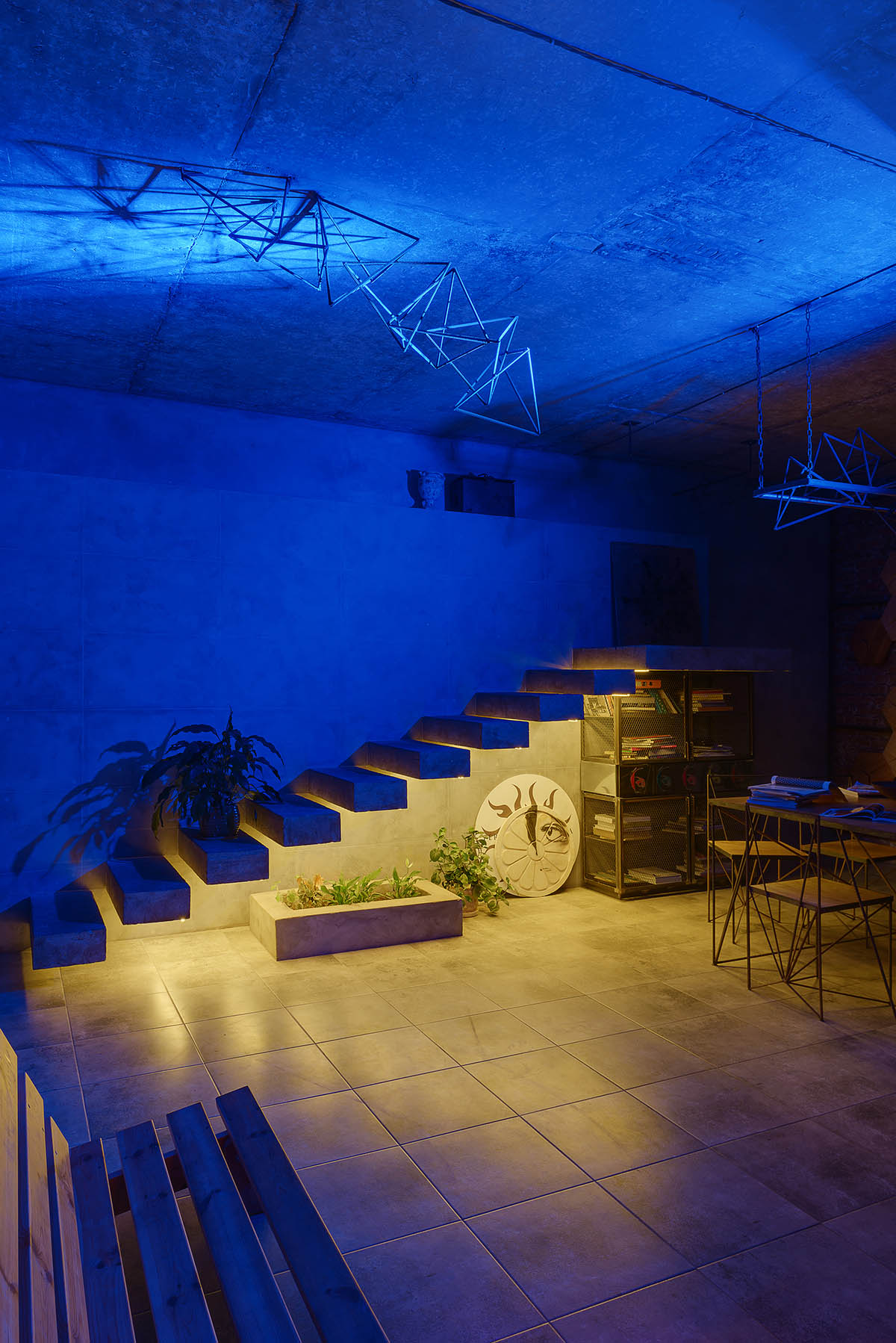

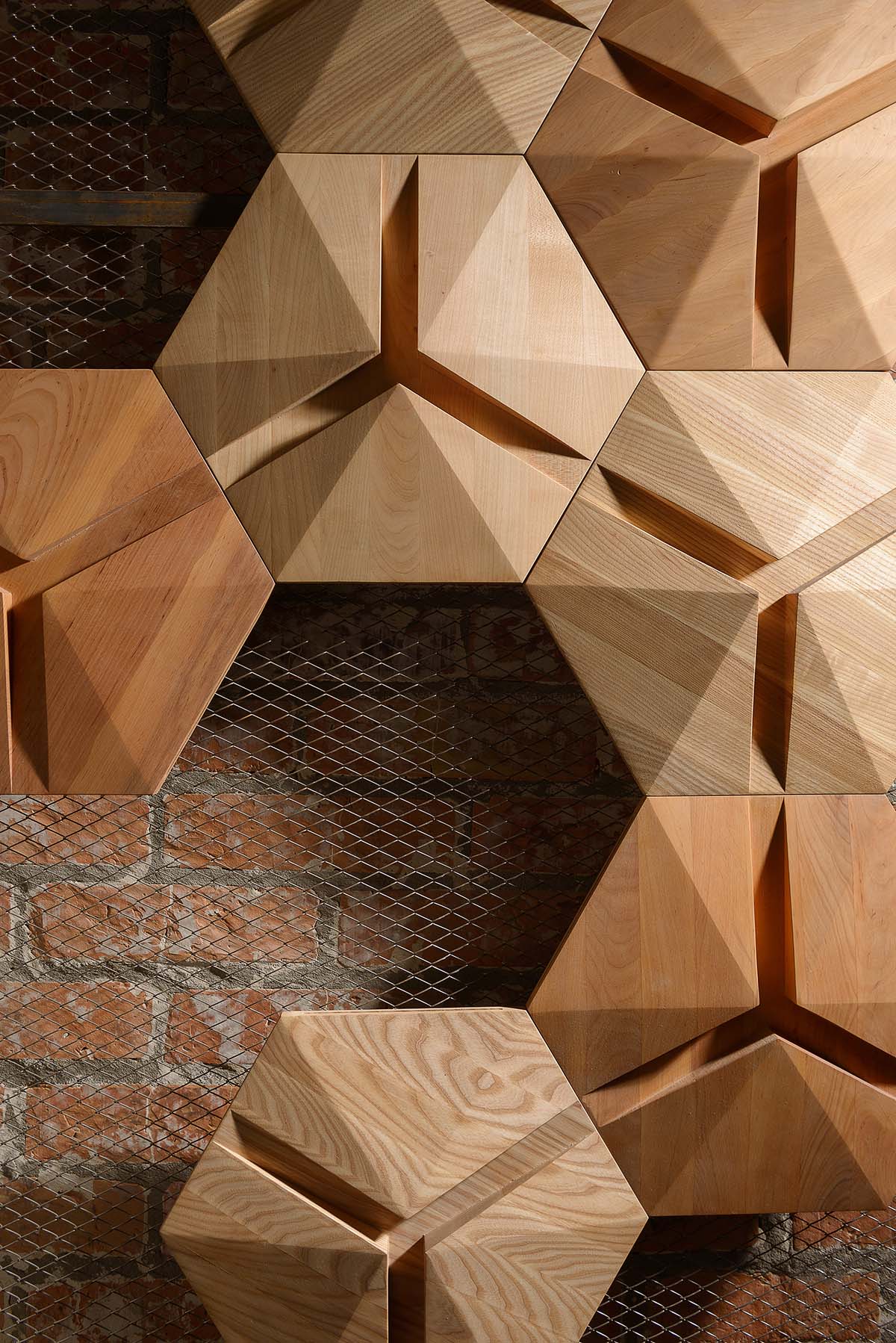
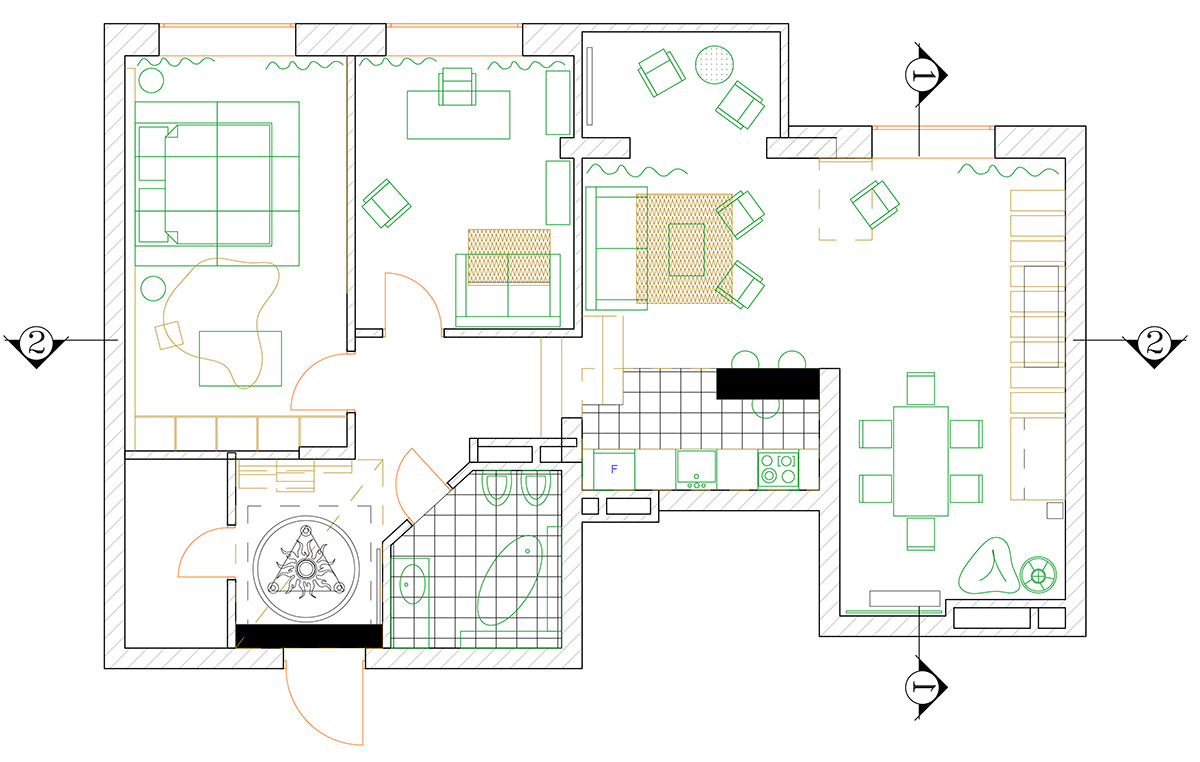
Floor plan
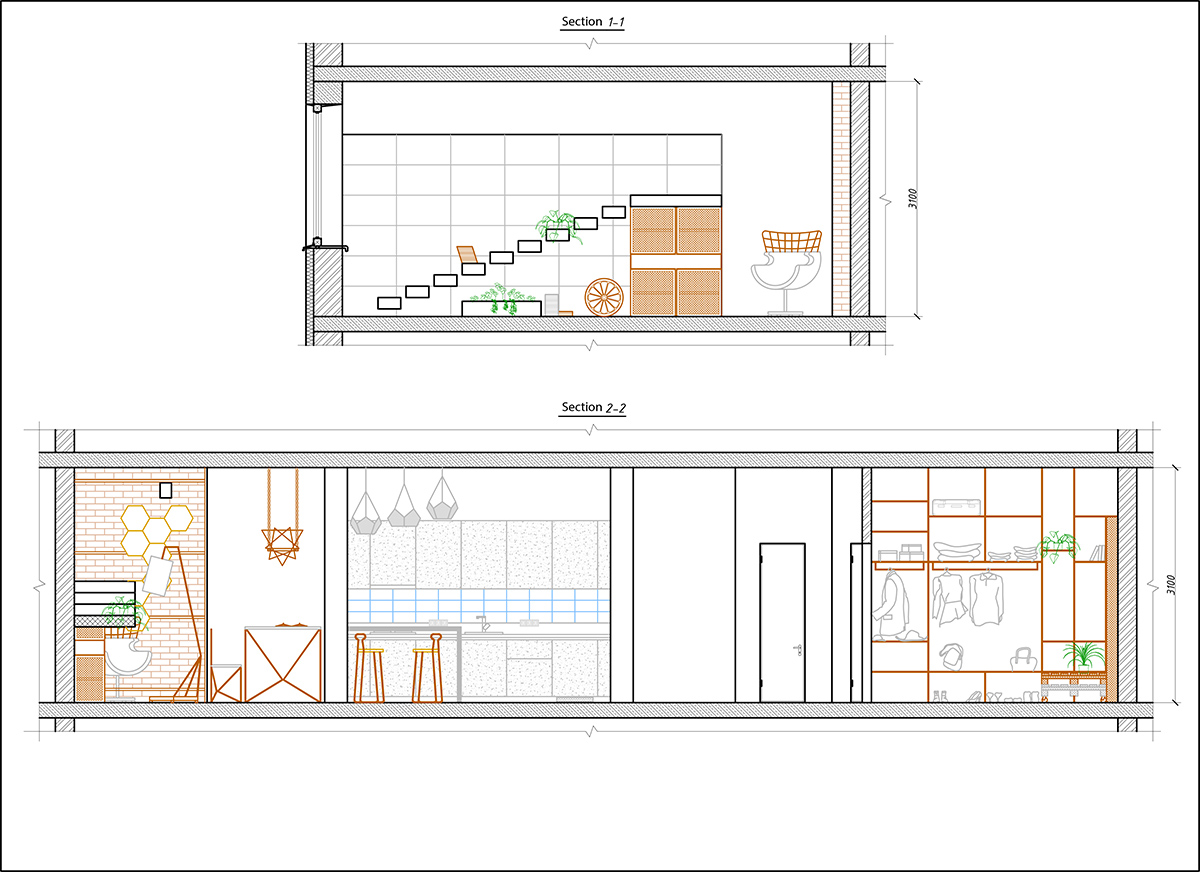
Sections

Idea diagram-1
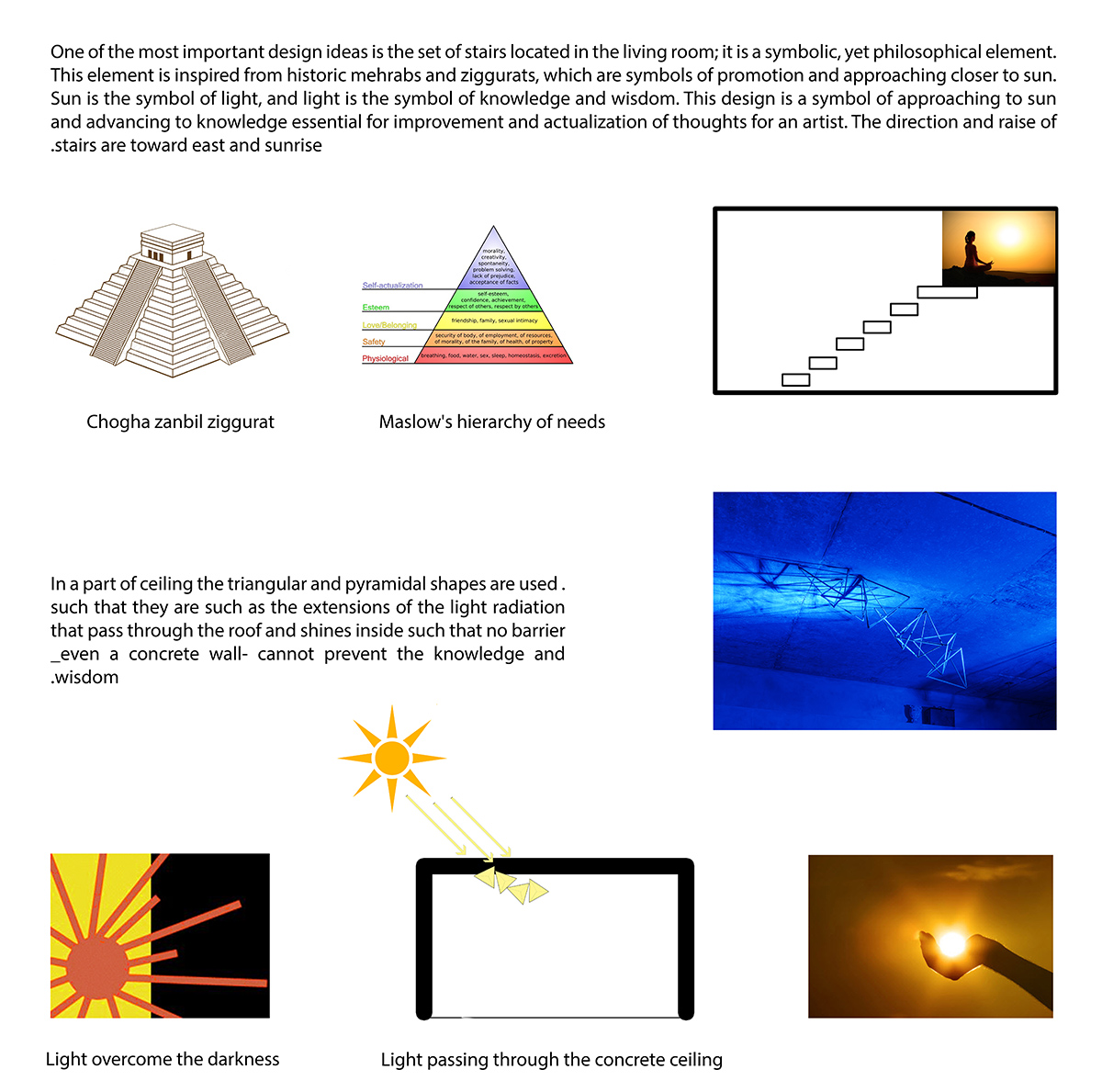
Idea diagram-2
Project Facts
Design firms: Persian Primavera /Ukraine & Keivani Architects/Iran
Location: Street Ostrovskovo / Kiev / Ukraine
Architects in charge: Solmaz Fooladi, Nima Keivani, Sina Keivani
Client: Studio Persian Primavera
Design Associates / Team: Ladan Mostofi, Konstantin Starodubtsev
Executive Manager: Solmaz Fooladi
Graphic: Sina Keivani
Building Type: Residential interior design
Project area: 101 square meter
Date of Construction: June 2016
All images © Sergey Savchenko
> via Keivani Architects
